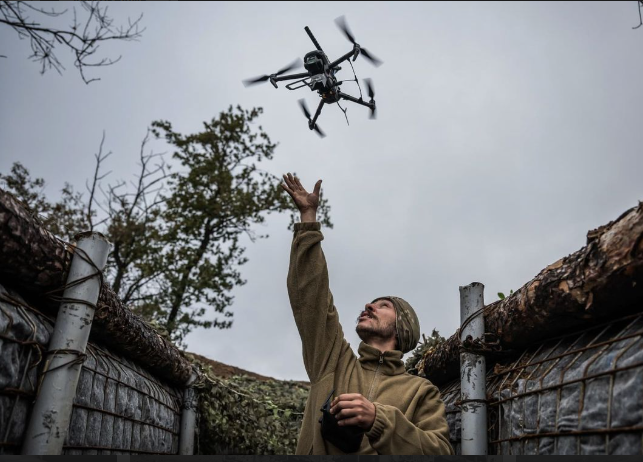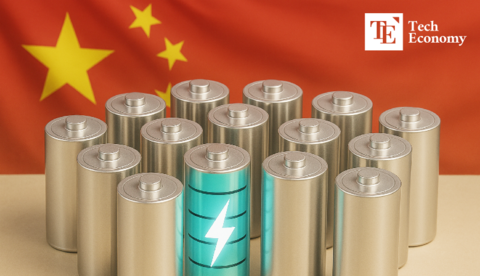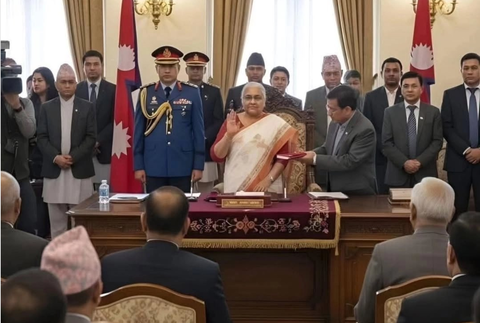Starlink, Ukraine, and the Battle for Digital Warfare: Elon Musk’s Satellite Network at the Heart of a Global Conflict
Input
Modified
A Critical Asset in Ukraine’s Defense Geopolitical Tensions: Who Controls Starlink? Seeking Alternatives: Can Ukraine Reduce Its Dependence on Starlink?

A Critical Asset in Ukraine’s Defense
Elon Musk’s Starlink has become a lifeline for Ukraine’s defense, enabling battlefield communication while sparking geopolitical tensions over its control and funding. As allies debate its reliability and search for alternatives, the conflict underscores the growing power of private tech in global warfare.
Ukraine has been heavily dependent on contemporary technological solutions to maintain essential government and civilian infrastructure, coordinate military operations, and sustain communication since the onset of Russia's full-scale invasion of Ukraine in 2022. SpaceX's Starlink, a satellite internet service established by Elon Musk, has been one of the most critical assets in this regard. A constellation of low-Earth orbit satellites, known as Starlink, offers mobile and resilient internet access, in contrast to traditional communication networks that have been systematically targeted and destroyed during the conflict.
Elon Musk has himself recognized the significance of Starlink in the defense of Ukraine, claiming that it is the "backbone of the Ukrainian army" and that the "entire front line would collapse" if it were to be turned off. This statement emphasizes the extent to which the satellite communication network has become ingrained in the military and strategic operations of Ukraine. Ukrainian forces can coordinate maneuvers, control drone operations, facilitate real-time intelligence sharing, and support secure military communications with the help of Starlink's capabilities. The significance of a secure, high-speed, and reliable internet has become as significant as traditional weaponry in an era where warfare is becoming increasingly digitalized.
Starlink has been instrumental in the preservation of Ukraine's civilian communications and governmental functions, in addition to its role on the battlefield. Starlink terminals allowed emergency services, hospitals, and media organizations to continue operating during periods of telecommunications failures and power outages in major cities. This degree of digital resilience has been crucial in reducing the effects of physical infrastructure disruptions and intrusions.

Geopolitical Tensions: Who Controls Starlink?
Starlink's involvement in Ukraine has not been without controversy, despite its indisputable utility. The financial aspect of the maintenance of Starlink terminals in Ukraine has been a subject of diplomatic tension. Starlink's operations have been funded by a variety of international stakeholders, such as the United States, Poland, and other Western allies. It is reported that Poland has purchased 20,000 Starlink terminals, which amounts to approximately $50 million annually. This amount includes both the procurement and maintenance costs.
Nevertheless, this funding arrangement has resulted in political tensions. Radoslaw Sikorski, the Polish Foreign Minister, recently proposed that Poland may need to investigate alternative satellite communication providers in the event that Starlink's reliability becomes dubious. U.S. Secretary of State Marco Rubio responded with a sharp comment, criticizing Poland's position and suggesting that the country should be more appreciative of the contributions made by Starlink. Rubio underscored that Ukraine's military would have encountered substantial difficulties in resisting Russian aggression in the absence of Starlink.
Elon Musk has been the subject of intense debates concerning the control and constraints of Starlink's deployment in Ukraine. Musk reportedly declined a Ukrainian request to expand Starlink's coverage in order to facilitate an attack on Russian naval assets in Crimea, which was one of the most contentious incidents. He subsequently disclosed that his decision was driven by apprehensions regarding the potential for the conflict to escalate into a more extensive war, which could involve NATO or other international actors in direct conflict with Russia. This action elicited criticism from Ukrainian officials and certain Western leaders, who contended that Ukraine's capacity to defend itself could be compromised by the restriction of Starlink's use in military operations. The geopolitical impact of a private entity that manages critical wartime infrastructure raises more general inquiries regarding the intersection of business interests and national security. The traditional state-centric approaches to conflict management are complicated by the increasing reliance on private sector innovations in modern warfare, as evidenced by the Starlink controversy. Musk's position as an individual with significant influence over Ukraine's digital infrastructure illustrates the extent to which influential technology entrepreneurs have become significant actors in global security matters

Seeking Alternatives: Can Ukraine Reduce Its Dependence on Starlink?
The ongoing controversy regarding the use of Starlink in Ukraine has prompted a discussion regarding the necessity of alternative satellite communication systems. Recognizing the strategic vulnerability of relying on a single private provider, European nations have been exploring alternative options. Eutelsat, a Franco-British satellite operator, is one such alternative that has the potential to expand or supplant the capabilities of Starlink. Nevertheless, experts have noted that Eutelsat and other comparable systems are subject to substantial constraints, such as longer deployment timelines, bulkier apparatus, and higher costs, which render them less suitable for immediate military applications.
In the same vein, the European Union's IRIS² satellite initiative and Amazon's Project Kuiper have been identified as potential competitors to Starlink. However, it is improbable that these initiatives will offer a viable solution to Ukraine in the near future, as they are still in the developmental stages. Musk's influence over Ukraine's digital battlefield is further entrenched by the unavoidable dependency on Starlink, at least for the time being.
In the interim, the United States has been actively engaged in diplomatic discussions to evaluate Ukraine's future requirements and broader strategy. Saudi Arabia has facilitated high-level meetings between U.S. and Ukrainian officials to investigate potential pathways to peace while ensuring that Ukraine retains access to essential technological resources. The long-term trajectory of U.S. and Western support for Ukraine is likely to be influenced by the outcome of these discussions, which will determine whether alternative satellite communication providers should be prioritized.
In the broader context, the Starlink case study serves as an illustration of the increasing significance of space-based communication networks in contemporary international diplomacy and warfare. It also raises ethical and strategic concerns regarding the involvement of tech titans in global conflicts. Is it appropriate for private companies to exercise such a significant amount of influence over matters of war and peace? In the event that this is the case, how should governments regulate and collaborate with them to ensure that national security interests are adequately protected? Elon Musk's Starlink has been an essential asset in Ukraine's defense against Russian aggression, as it has maintained both military and civilian functions by enabling critical communication capabilities. Nevertheless, the dependence on a single private entity for such a critical service has sparked ethical dilemmas, financial disputes, and geopolitical tensions in the context of the control of digital infrastructure during wartime. The pursuit of alternative solutions remains a continuous priority as international stakeholders navigate these complexities. Ultimately, the role of Starlink in Ukraine highlights a fundamental shift in contemporary warfare, where technology entrepreneurs and private enterprises are playing increasingly significant roles in shaping global security landscapes.





















